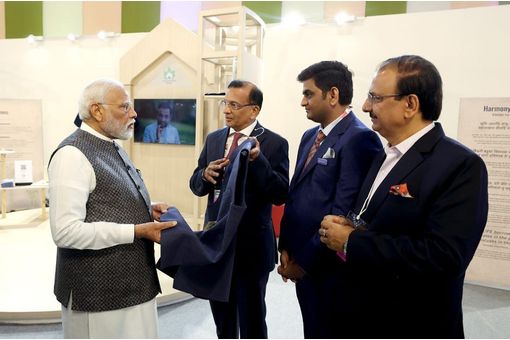Interviews
AAFA outlines unintended consequences of shutting down public debate
30 Sep '09
3 min read
The American Apparel & Footwear Association (AAFA) expressed outrage over the Obama Administration's effort to eliminate transparency and remove valuable input from the public policy debate affecting trade and other important issues. In a September 23 White House Blog posting, a senior Obama Administration official urged all executive agencies to remove any federally registered lobbyists from its public agency advisory boards and committees. This guidance does not affect lobbyists who are not federally registered.
“When President Obama entered office, he made an unprecedented commitment to bring about a more transparent and inclusive government for the American people,” said AAFA President and CEO Kevin M. Burke. “This recently published guidance takes a huge step backward from that honorable commitment. I do not see how we promote inclusiveness and transparency by shutting the door to critical industry voices solely because they have complied with the law.”
“These bodies are composed of a full and diverse representation of stakeholders,” said AAFA Executive Vice President Stephen Lamar, who also serves on several trade advisory committees. “By gutting these advisory groups, the U.S. government would limit its own access to industry experts whose advice is crucial for a robust and well-balanced U.S. trade policy. Forcing our negotiators to work without this advice is like making somebody get dressed in the dark.”
“The advisory role AAFA and similar groups play in the public policy process helps promote clearer transparency, more accountability, and better cooperation between industry and regulators,” Burke said. “AAFA strongly believes that this announcement does not benefit the U.S. apparel and footwear industry, its suppliers, or its consumers.”
Transparency
The Lobbying Disclosure Act requires lobbyists to register and regularly disclose their activities if they reach certain thresholds. Because of these standards, federally registered lobbyists – whether they represent business, labor, consumers, or other groups – may be the most transparent group in Washington, D.C. Many small businesses rely on their industry's trade associations, which employ federally registered lobbyists, to serve as a powerful voice in Washington to create an environment that allows them to succeed in their businesses.
However, by singling out federally registered lobbyists, this recommendation ironically encourages individuals to not register, even though they still may be engaged in lobbying work. The result is that less light, not more, will shine on the policymaking process.
Cooperation
As any presidential-appointed official has said during a confirmation hearing, agencies should always work hand-in-hand with industry to create practical solutions to societal problems. Removing an advisor because of his or her compliance with federal registration resulting from lobbying activities unfairly punishes an entire industry and sets back that cooperation. Moreover, by contriving an artificial stigma for federally registered lobbyists, this policy would inject tension into the public policy debates. It would also interfere with efforts to ensure broad representation of all stakeholders in the discussion necessary to achieve beneficial and bipartisan results.
“When President Obama entered office, he made an unprecedented commitment to bring about a more transparent and inclusive government for the American people,” said AAFA President and CEO Kevin M. Burke. “This recently published guidance takes a huge step backward from that honorable commitment. I do not see how we promote inclusiveness and transparency by shutting the door to critical industry voices solely because they have complied with the law.”
“These bodies are composed of a full and diverse representation of stakeholders,” said AAFA Executive Vice President Stephen Lamar, who also serves on several trade advisory committees. “By gutting these advisory groups, the U.S. government would limit its own access to industry experts whose advice is crucial for a robust and well-balanced U.S. trade policy. Forcing our negotiators to work without this advice is like making somebody get dressed in the dark.”
“The advisory role AAFA and similar groups play in the public policy process helps promote clearer transparency, more accountability, and better cooperation between industry and regulators,” Burke said. “AAFA strongly believes that this announcement does not benefit the U.S. apparel and footwear industry, its suppliers, or its consumers.”
Transparency
The Lobbying Disclosure Act requires lobbyists to register and regularly disclose their activities if they reach certain thresholds. Because of these standards, federally registered lobbyists – whether they represent business, labor, consumers, or other groups – may be the most transparent group in Washington, D.C. Many small businesses rely on their industry's trade associations, which employ federally registered lobbyists, to serve as a powerful voice in Washington to create an environment that allows them to succeed in their businesses.
However, by singling out federally registered lobbyists, this recommendation ironically encourages individuals to not register, even though they still may be engaged in lobbying work. The result is that less light, not more, will shine on the policymaking process.
Cooperation
As any presidential-appointed official has said during a confirmation hearing, agencies should always work hand-in-hand with industry to create practical solutions to societal problems. Removing an advisor because of his or her compliance with federal registration resulting from lobbying activities unfairly punishes an entire industry and sets back that cooperation. Moreover, by contriving an artificial stigma for federally registered lobbyists, this policy would inject tension into the public policy debates. It would also interfere with efforts to ensure broad representation of all stakeholders in the discussion necessary to achieve beneficial and bipartisan results.
American Apparel & Footwear Association
Popular News
Leave your Comments
Editor’s Pick
































-Ltd..jpg?tr=w-120,h-60,c-at_max,cm-pad_resize,bg-ffffff)





.jpg?tr=w-120,h-60,c-at_max,cm-pad_resize,bg-ffffff)
.jpg?tr=w-120,h-60,c-at_max,cm-pad_resize,bg-ffffff)






